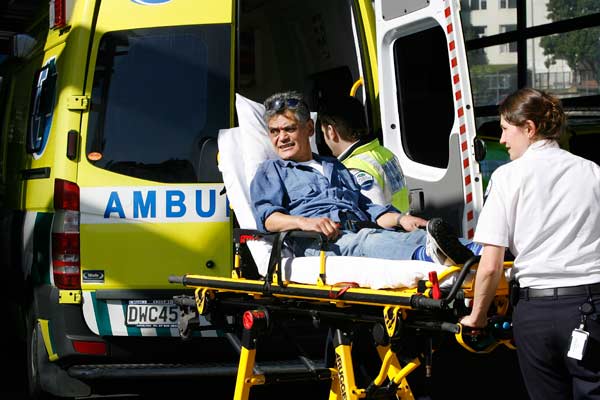Ambulance Officer
Tasks & duties

Ambulance officers may do some or all of the following:
-
attend accidents and emergencies
-
treat ill and injured people
-
stabilise the patient's condition by treating shock and injuries
-
transport patients and accident victims to medical facilities
-
be on hand at large gatherings, such as sports events, in case of accidents or illness
-
ensure the ambulance and equipment is kept clean and in good working condition
-
liaise with other emergency services, such as fire and police, at the scene of an emergency
-
transfer patients to and from medical facilities
Specialisations
Senior ambulance officers may do specialised rescue work in air ambulances, which provide transport for patients to and from emergencies in other towns, or incidents that occur in remote areas or off-road.
Skills & knowledge

Ambulance officers need to have:
-
good knowledge of pre-hospital emergency care
-
knowledge of anatomy and physiology of the human body
-
knowledge of medications and treatments, and the effect these have on patients
-
the ability to judge and diagnose a patient's condition
-
knowledge of patients' rights
-
knowledge of different cultural and religious beliefs about how the body should be treated
-
the ability to use technical equipment such as cardiac defibrillators
-
excellent driving skills
-
good knowledge of the town they work in and the ability to read a map to locate all the streets and buildings in an area
-
good communication skills
-
problem-solving and decision making skills
Entry requirements
To become a full-time paid ambulance officer you need to have a Bachelor of Health Sciences (Paramedic), which is offered by Whitireia Community Polytechnic and AUT University, or a National Certificate in Ambulance (Patient Care & Transport).
For those without a tertiary qualification, many provincial regions and towns require you to have volunteer experience in the ambulance service before applying for a paid position.
To become a volunteer ambulance officer it is good to have a First Aid Certificate although this is not essential. All volunteers must have a clean driver's licence and undergo a police screening process. You also need to be physically fit.
St John website – becoming a volunteer
Wellington Free Ambulance website – becoming a volunteer paramedic
Secondary education
There are no specific secondary education requirements, but useful subjects include anatomy, physiology (body structure and function), biology, chemistry or other health science subjects, and English.
Training on the job
Ambulance officer training is extensive and begins before an officer starts working.
Training courses that ambulance officers are required to take during their careers include an induction course involving primary care, resuscitation, and patient assessment. Regular on-the-job assessment is also undertaken to ensure ambulance officers maintain their skills.
Volunteer ambulance officers can extend their qualifications by sitting the National Certificate in Ambulance (Patient Care & Transport) and the National Diploma in Ambulance (Paramedic). These courses can be done through ETITO, the ambulance industry training organisation.
Useful experience
Useful experience for ambulance officers includes working:
-
as a volunteer ambulance worker
-
in an industry that helps people
-
in a hospital or other health-related environment
-
as a patient transport service officer
-
in an emergency services call centre, handling emergency calls
Video
From just a job on you tube
Related courses
Paramedical Studies
For more information, please refer to Career Services.
Document Actions
